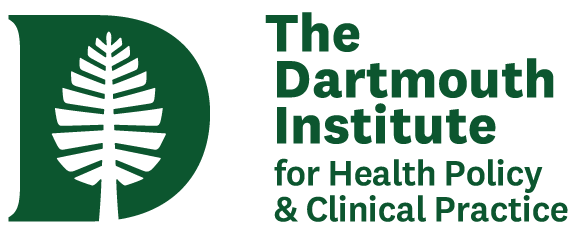Bio
David Goodman is a physician, health services researcher, and educator with a longstanding interest in the causes and consequences of health care variation. In his early years, his studies focused on the relationship of physician supply to population outcomes, and applied the findings to public policy development. More recently, his research portfolio investigates unwarranted variation in the use of neonatal intensive care.
Dr. Goodman is one of the founding investigators of the Dartmouth Atlas of Health Care and has led multiple Atlas projects on such topics as end-of-life cancer care, post hospital discharge care, and care for infants and children. He has served on multiple journal editorial boards, and federal and Institute of Medicine committees, including a term as the chair of the Council on Graduate Medical Education. His research papers and editorials have been published in the New England Journal of Medicine, JAMA, Health Affairs, Pediatrics, and The New York Times.
He received a BA from the University of Vermont, an MD from the State University of New York Upstate Medical Center, and an MS in medical care epidemiology from Dartmouth College. He served his residency in pediatrics at The Johns Hopkins Hospital, and then practiced as a rural National Health Corps physician before joining the Dartmouth faculty.
Published Research
Arakelyan M, Freyleue SD, Schaefer AP, Austin AM, Moen EL, O'Malley AJ, Goodman DC, Leyenaar JK
J Rural Health|2024 Mar
Hospital-Level NICU Capacity, Utilization, and 30-Day Outcomes in Texas.
Goodman DC, Stuchlik P, Ganduglia-Cazaban C, Tyson JE, Leyenaar J, Avritscher EBC, Rysavy M, Gautham KS, Lynch D, Stukel TA, Texas Neonatal Care Research Collaborative
JAMA Netw Open|2024 Feb 5
Maternal satisfaction with group care: a systematic review.
Sadiku F, Bucinca H, Talrich F, Molliqaj V, Selmani E, McCourt C, Rijnders M, Little G, Goodman DC, Rising SS, Hoxha I
AJOG Glob Rep|2024 Feb
Leyenaar JK, Freyleue SD, Arakelyan M, Goodman DC, O'Malley AJ
JAMA Netw Open|2023 Sep 5
Austin AM, Schaefer AP, Arakelyan M, Freyleue SD, Goodman DC, Leyenaar JK
Acad Pediatr|2023 Nov-Dec
Courses Taught
PH 139:
Epidemiology/Biostatistics: Part 1
(4)
The epidemiology component of this course introduces the basic principles of epidemiology, including formulation of the research question, choice of study subjects, measures of disease frequency, assessment of exposure and disease status, study design (cross-sectional studies, prospective and retrospective cohort studies, case-control studies, and clinical trials), measures of association between exposure and disease (risk ratio and risk difference measures) and causal inference. Taught as lectures and assigned exercises, this course stresses the practical applications of epidemiological techniques.
The biostatistical topics in this course include vital rates and ratios, probability concepts, discrete and continuous probability distributions, populations and samples, and introduction to the use of computers for statistical analysis.
Core Requirement for MPH and MS
Prerequisites: None
PH 144:
The Current Status of Practice Variation Research
(1)
This short course will focus on readings from the book, Tracking Medicine, by John E. (Jack) Wennberg. Wennberg reviews his and his colleagues' work on practice variations, beginning with small area variation in Vermont, extending through efforts to evaluate the reasons behind variation in surgical procedures, and concluding with the more recent work associated with overuse of supply sensitive care as described in the Dartmouth Atlas of Health Care. The course includes significant time for discussion and interaction.
Core Requirement for MPH and MS
Prerequisites: None
PH 140:
Applying Health Statistics
(1.5 units)
Students will critically appraise studies of analytic epidemiology. After classifying a study’s design and acknowledging its inherent limitations, students will trace what outcome measures (e.g., risks) and effect measures (e.g., risk ratios) were used to describe the problem and assess impact. Students will appraise the choice of these numbers, how the authors explained them, and whether their conclusions were justified. Weekly laboratory sessions allow students to conduct their own analyses with Stata® on real-world datasets.

